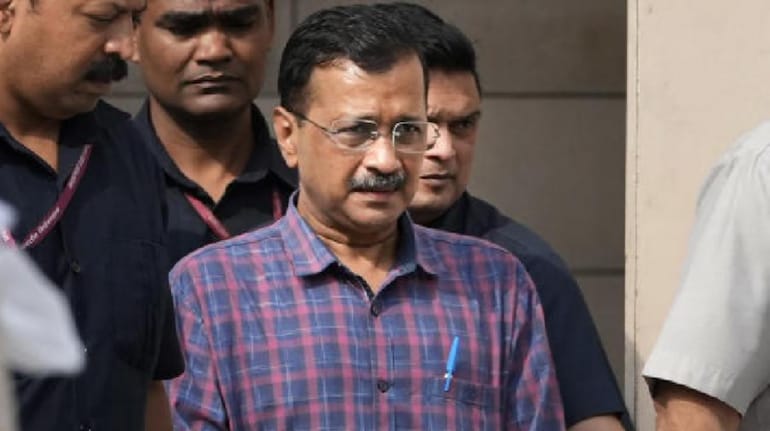



The Supreme Court on April 15 refused immediate relief to Delhi chief minister Arvind Kejriwal who had challenged his arrest by the Enforcement Directorate (ED) for alleged money laundering in the liquor policy case that has rocked the Delhi government.
The court issued notice to ED and asked it respond to the Aam Aadmi Party (AAP) chief’s petition by April 24. The case is likely to be heard in the week beginning April 29.
Appearing for Kejriwal, senior advocate Abhishek Manu Singhvi questioned the timing of the arrest and said the case would shock the “conscience” of the court.
The Justice Sanjiv Khanna-led bench, however, said it was won’t find an immediate interim order without first hearing ED.
Kejriwal moved the court against the Delhi High Court order that upheld his arrest. The high court said the material collected by the ED showed the chief minister was actively involved in the use of proceeds of crime.
The court had also come down hard on Kejriwal's comments on accused who had turned approvers and said the allegations amounted to casting aspersions on the judiciary and questioning the judicial process.
It said the approvers were granted pardon by courts and not by ED.
Kejriwal was arrested on March 21, hours after the high court refused to grant him protection from arrest in the Delhi liquor policy case.
The chief minister did not turn up for inquiry when summonses were issued to him and was also non-cooperative, ED said while seeking his remand. He was in ED custody till April 1 and then sent in judicial custody and is lodged in the high-security Tihar jail.
Later in the day, Delhi's Rouse Avenue Court extended his judicial custody to April 23.
Discover the latest Business News, Sensex, and Nifty updates. Obtain Personal Finance insights, tax queries, and expert opinions on Moneycontrol or download the Moneycontrol App to stay updated!
Find the best of Al News in one place, specially curated for you every weekend.
Stay on top of the latest tech trends and biggest startup news.